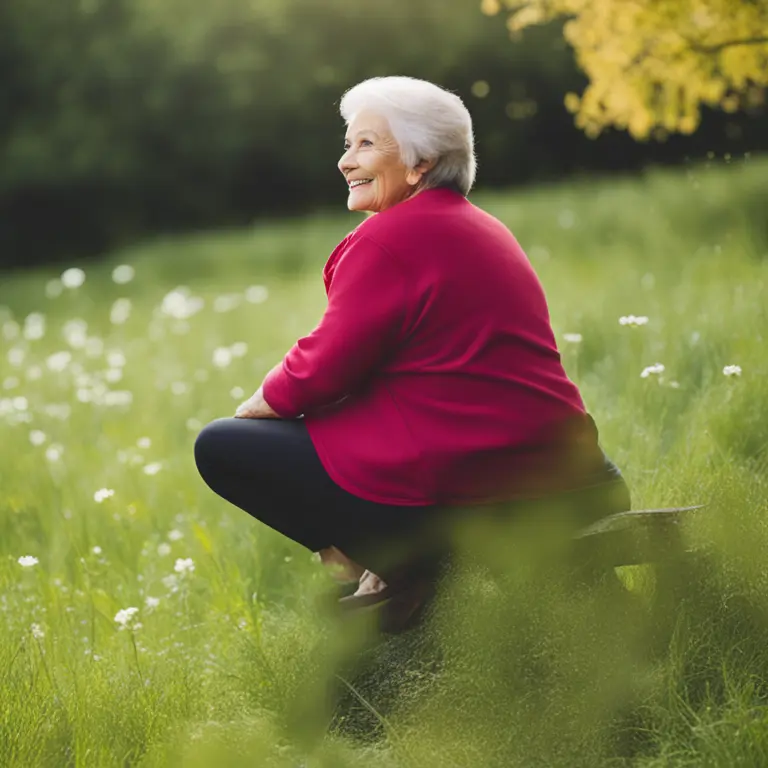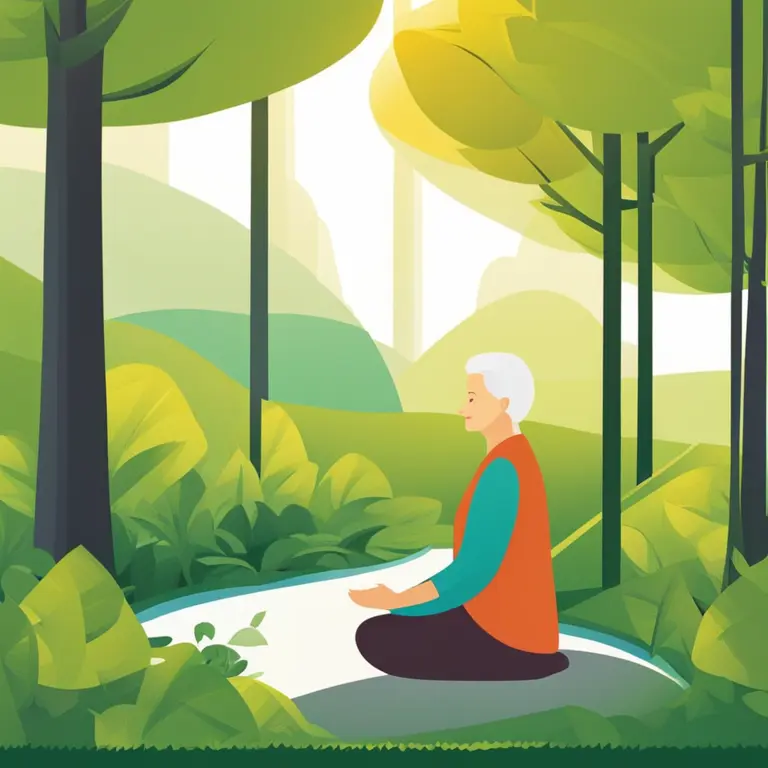
Meditation Benefits for Seniors
Explore the profound impact of mindfulness meditation on enhancing the quality of life for older adults. Learn techniques to promote mental clarity, emotional balance, and physical well-being in senior years.
article by Hina Kurosawa
Introduction to Mindfulness for Seniors
Meditation has long been esteemed for its ability to bring tranquility, but its role in aiding the older population is gathering remarkable notice. Mindfulness meditation, a practice focusing on present-moment awareness, can be a formidable ally against the challenges that accompany aging. Recent studies suggest that this ancient technique can improve cognitive function, bolster emotional health, and even contribute to a more robust physical condition among older adults. As the global population ages, the benefits of integrating mindfulness into daily routines become increasingly significant.

Cognitive Clarity Through Mindfulness
Cognitive decline is a pressing concern for many seniors, yet mindfulness meditation has shown promising results in preserving the brain's agility. Engaging regularly in this practice can sharpen attention, enhance focus, and possibly slow the progress of memory-related conditions. Staying intellectually active is crucial at an older age, and mindfulness exercises serve as a gentle yet effective workout for the mind.

Emotional Balance in Later Years
Emotional resilience is as vital as physical health, and mindfulness meditation provides a path to achieve it. By promoting a sense of calm and reducing stress, practitioners can manage their emotions more effectively. This serene state of mind is particularly beneficial for seniors who may struggle with loneliness, depression, or anxiety. With mindful meditation, they can learn to embrace their emotions without being overwhelmed by them.

The Intersection of Mindfulness and Physical Health
The correlation between mental well-being and physical health is undeniable, especially for the elderly. Mindfulness meditation helps lower blood pressure, reduce chronic pain, and improve sleep quality. Moreover, connecting with one's body through meditative practices can encourage healthier lifestyle choices, such as better nutrition and increased physical activity. These cumulative benefits contribute to prolonged independence and a more vibrant life at an older age.

Incorporating Mindfulness into Daily Routines
Starting a mindfulness practice can be as simple as dedicating a few minutes each day to focused breathing and awareness. For seniors, structured classes or guided meditations can be an excellent way to ease into the habit. Technology has made these resources more accessible than ever, with apps and online communities providing support and guidance. Additionally, integrating mindfulness into everyday activities—like walking or gardening—can help older adults remain grounded and present.
Overcoming Challenges and Staying Committed
While beginning any new routine can be daunting, mindfulness meditation is particularly well-suited for adaptation to individual needs and restrictions. Chairs can replace floor cushions, and sessions can vary in length to suit endurance levels. Persistence is key, and as seniors continue to practice, the benefits of mindfulness meditation reinforce the commitment to the discipline. Support from caregivers and family members can also enhance engagement and make mindfulness a shared journey.
Published: 1/18/2024
Modified: 1/18/2024
More predictions
Come back here soon to learn more about yourself and your future


Mindfulness Meditation: A Path to Lasting Happiness
Discover how mindfulness meditation can enhance your sense of wellbeing and lead you to a happier life in this insightful article.


The Art of Mindfulness Meditation: A Step-by-Step Guide
Discover the serene journey of mindfulness meditation—learn the art of presence and cultivate a more mindful, peaceful existence.


A Beginner's Guide to Mindful Meditation Explained
Discover the essentials of mindful meditation to start your journey towards inner peace and heightened awareness with this beginner-friendly guide.